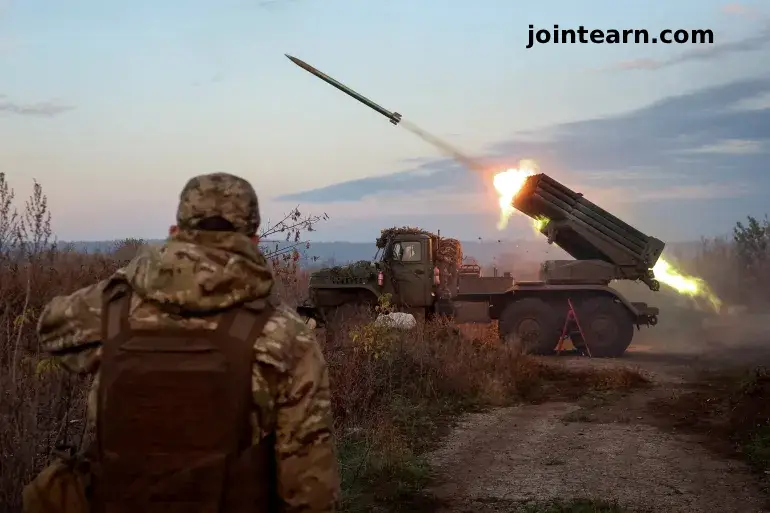
As the Trump–Xi summit approaches, global attention is turning to whether China could play a decisive role in bringing Russia’s war in Ukraine to an end. While some observers believe Beijing has the power to cripple Moscow’s war machine almost overnight, they also warn that deep-rooted geopolitical and economic interests make a quick peace unlikely.
China’s Central Role in Russia’s War Effort
Despite officially maintaining “neutrality,” China has emerged as Moscow’s most vital economic and technological lifeline. Both Russia and Ukraine rely heavily on Chinese-made components—from drone parts and fiber optics to jamming systems.
“Almost each component is made in China,” said Andrey Pronin, a pioneer of Ukraine’s drone warfare program. “China could cut off their side—or ours.”
According to Ukrainian intelligence, Beijing supplies four-fifths of the drones and dual-use technology that keep Russia’s military operational. A Washington-based think tank, the Foundation for Defense of Democracies, estimates that up to 97% of Ukraine’s drone components are also Chinese-made—highlighting Beijing’s inescapable position on both sides of the war.
Trump’s Diplomatic Gambit
US President Donald Trump has signaled that he wants China’s help in dealing with wartime Russia. At a press briefing on October 24—just days after cancelling a planned meeting with Vladimir Putin—Trump said:
“I’d like China to help us out with Russia.”
The remark set expectations for the upcoming Trump–Xi meeting in Busan, South Korea, on the sidelines of the Asia-Pacific Economic Cooperation (APEC) summit. It will mark the leaders’ first face-to-face encounter since 2019.
Ukrainian President Volodymyr Zelenskyy expressed cautious optimism, saying he hopes the talks “help us all.” His government wants Washington to persuade Beijing to limit or halt Russian energy exports, which generate billions for Putin’s war chest.
The Economic Chessboard: China’s Energy Interests
However, analysts warn that Trump’s new sanctions on Russian oil giants Rosneft and Lukoil could backfire, unintentionally benefiting China. With Western partners now shunning these companies, Chinese energy firms are poised to fill the gap, expanding Beijing’s reach into resource-rich regions in Central Asia and Africa.
Volodymyr Fesenko, head of the Kyiv-based Penta Center, argues that China’s leverage over Moscow is unmatched:
“Without China’s economic cooperation, Russia cannot sustain the war. If Beijing truly wanted to end it, a single firm stance in closed-door talks with Putin would be enough.”
But he adds a caveat:
“Beijing has no reason to make a gift to Trump.”
Between Superpowers: Mutual Distrust and Rival Agendas
Trump’s previous term saw relations with China deteriorate sharply, as the US sought to curb Beijing’s global ambitions and restrict access to advanced Western technology. The ensuing US–China trade war—marked by mutual tariffs and threats over critical minerals—continues to shadow bilateral talks.
Analysts say both leaders have bigger priorities than Ukraine, with trade, AI dominance, and Taiwan likely to dominate discussions. Nevertheless, the Russia–Ukraine conflict remains a crucial test of how far Trump and Xi can align their strategic goals.
Why China Prefers a “Frozen” Conflict
Despite its economic influence, Beijing has shown little appetite for an abrupt end to the war. According to Kyiv-based analyst Igar Tyshkevych, China’s ideal outcome is a “frozen conflict”—one that avoids a decisive victory for either side.
“Washington is active about freezing the war,” Tyshkevych said. “I won’t be surprised if Beijing will be active in the same direction.”
A prolonged stalemate allows China to maintain leverage over both Moscow and Washington, preserving its image as a neutral powerbroker while ensuring continued access to discounted Russian oil and military intelligence.
Meanwhile, the US benefits from keeping Russia bogged down, preventing it from reasserting global dominance. Neither power, analysts note, wants to see a total collapse of Russia, which could destabilize Asia’s northern frontier and empower extremist movements.
Europe’s Stakes and the Global Fallout
For Europe, a frozen or simmering war is deeply problematic. Continued instability along the continent’s eastern borders threatens energy security, migration flows, and defense budgets. Yet Beijing has been steadily expanding its economic footprint in Eastern Europe, financing infrastructure and logistics hubs once dominated by Moscow.
“The escalation of the war and its spread to Europe contradicts China’s interests,” said Fesenko. “Beijing wants control and influence—not chaos.”
If the conflict remains unresolved, Kyiv is expected to deepen cooperation with the European Union, Türkiye, and even Pakistan—nations with strategic ties to China—to counterbalance Moscow’s influence and hedge against shifting alliances.
Putin’s Strategic Offers to Trump
Despite the tensions, Putin still hopes to woo Washington through strategic deals. Russian officials have floated proposals for joint Arctic shipping routes, energy projects, and even nuclear security collaborations—fields where Moscow still considers itself America’s equal.
“Non-proliferation is the only sphere where Russia stands on par with the United States,” said Tyshkevych, hinting that such proposals could form the basis for post-war diplomacy.
Outlook: The Limits of Power and Patience
As Trump and Xi prepare to meet, the world is watching whether China’s vast economic leverage and the US’s renewed diplomatic push can converge to ease the most devastating conflict in Europe since World War II.
But with mutual mistrust, clashing priorities, and the political calculus of great-power rivalry, experts believe any breakthrough—if it comes—will be slow and symbolic rather than transformative.


Leave a Reply